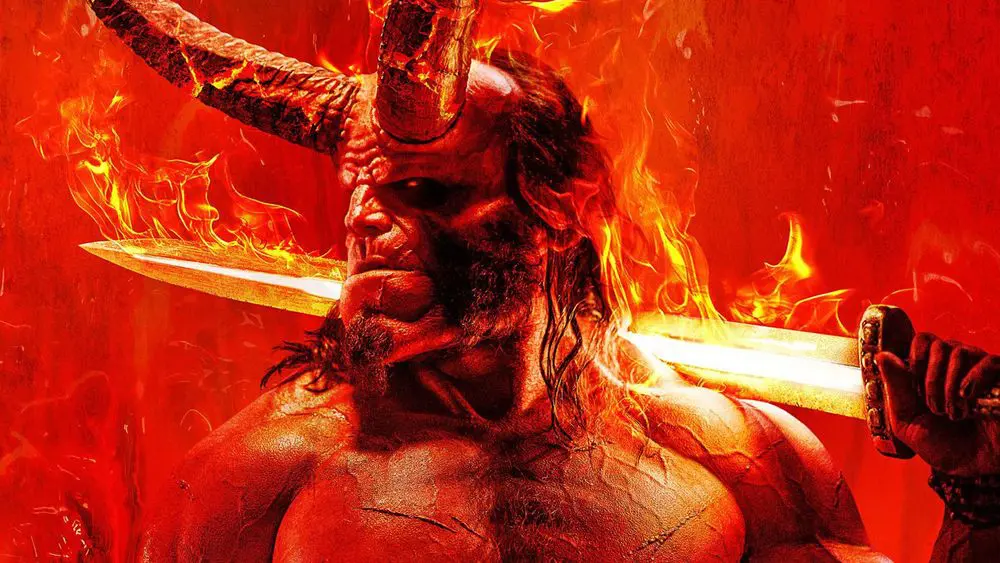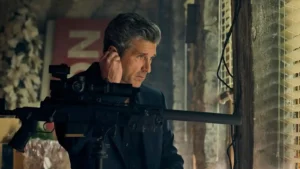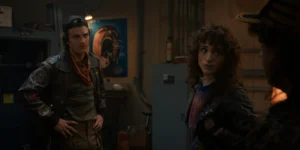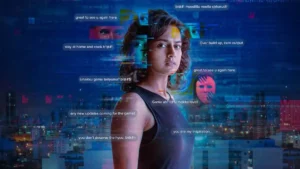Summary
The needless reboot of Hellboy sheds light on a union between director Neil Marshall and Lionsgate that practically screamed perfect-match but is in need of an annulment.
Legendary director Guillermo Del Toro’s vision of Hellboy, came when many had grown tired of the superhero genre. Studios were churning these films out with all looks, no substance, and some weren’t ready for his nuanced, dark, anti-hero vision. Before him, Burton and Schumacher never approached anything more than skin-deep with Batman. Del Toro found a comic book hero that fit his Pan’s Labyrinth sensibilities. Washing off all the sugar that coats most child fairytale films for Millennials and late-born Gen-X cinephiles craving something darker, more adult, with greater consequences.
While his foray into comic book films wasn’t a box-office smash, it did pave the way for bleaker visions of the genre (I contend Nolan’s Batman trilogy is the result of Hellboy’s stance). With Marvel rebooting the entire genre in itself, one would think the third installment of Pearlman and company would be a sure thing. Especially when you consider the cult following, it has a built-in nearly a decade. Studios, though, do what studios do, ruining a chance at greatness. Going with a director who flamed out after his initial debut, reported production issues. The result is a cheap imitation that is unworthy of its iconic character.
The reboot of Hellboy recasts Ron Pearlman with actor David Harbour, who is better known for his role in Netflix’s Stranger Things, but also has over 50 film and television credits under his belt. They say, Batman, initially, was all about the voice; the same goes for Hellboy. Trying to imitate Pearlman’s would come across as false. Still, the actor’s tone’s initial change can be jarring (especially after a re-watch of the first two films with Pearlman’s dark, deep vocals and having a very successful career as a voice-over artist). While Pearlman, no matter how much makeup, brings natural gravitas to the role, along with deadpan anti-hero insults, Harbour brings a lighter touch to the film series.
Gone are almost all the supporting characters from the first two films (so long Doug Jones), with Hellboy traveling to Mexico to find his partner that went MIA. The Beast of the Apocalypse returns to the BPRD (Bureau of Research and Defense) to his father and brings all sorts of daddy issues with him. Soon, they must deal with an evil sorceress (Milla Jovovich, the go-to horror queen) who is hell-bent on escaping her “prison” and exacting revenge on the world. The rest of the film is a clunky effort in telling an origin story that tries to balance the current storyline and doesn’t do either very well.
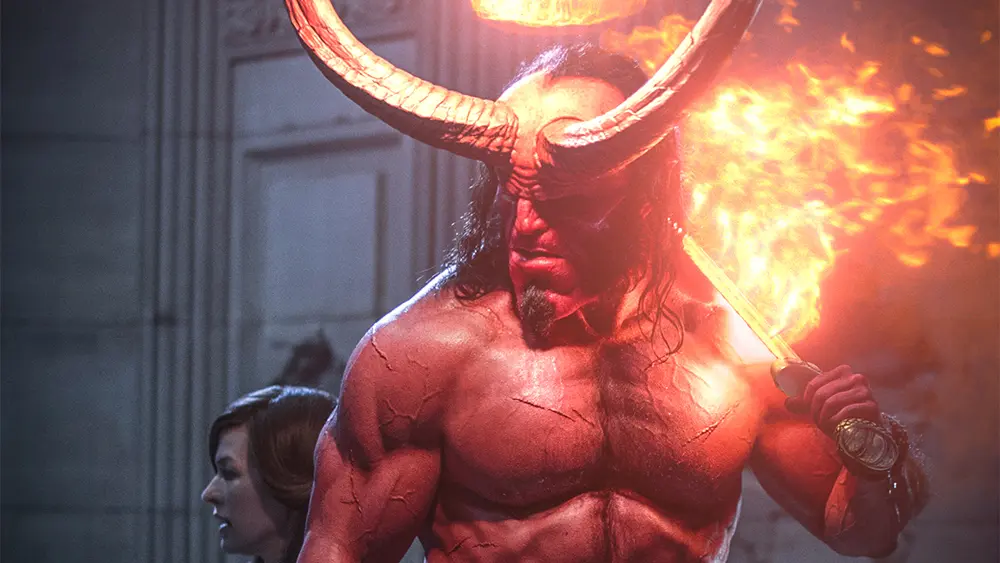
Therein lies the issues with the new Hellboy vision. With director Neil Marshall (you loved his The Descent and fell out of the feeling with Doomsday and The Centurion) trying his hand with balancing a horror film, a swing at a big-budget comic book franchise, and almost spoof-like jokes for comic relief. There is no seamless transition. Or equal balance between scenes for his version of The Right Hand of Doom. Being below average at all instead of good at one.
While you may have to admire the effort of making a superhero genre film that is straight horror, it never gets there. The team here is trying to smash together the director’s horror sensibilities. Then combining it with an influence of the studio to produce a less ambitious comic book picture for mass audience consumption. It simply doesn’t work. The script by Andrew Crosby, best known for creating the television show Eureka, attempts to combine inspiration from four of the titular character’s comic books. (Darkness Calls, The Wild Hunt, The Storm, the Fury, and Hellboy in Mexico).
This contributes to the same misguided attempt from its director. He clutters the film’s storylines, using Hellboy’s daddy issues as the character’s generic inner motivation. This misses the mark on almost all of its intended humor. In fact, the standout scene. In the entire film is the post-credits variety that doesn’t offer any insight. Though, it’s the most fun I had with Marshal’s film. I wish they would have stuck with that style throughout the duration. This would have shown Harbour at his Hellboy best.
Hiring the team of Marshall and Crosby as a follow-up act to Del Toro because of their history with the horror and fantasy genres is like calling up Richard Kelly to remake Blade Runner because he made one low-budget popular sci-fi fantasy film. The result is a cheap knockoff. Nothing is nearly as nuanced as the original. Along with the director/writer’s cluttered visions, you watch a film that has more in common with Schumacher’s failed comic fable attempts than any of the great ones we have had from the genre in the past decade.
The only silver lining can be a backlash from a fervent fanbase that gets Del Toro and the company team back on board to complete their vision. This needless reboot of Hellboy sheds light on a union between director Neil Marshall and Lionsgate that practically screamed a perfect match. Still, after looking at the result, it is in serious need of an annulment. It may be an act of desperation or seen as pathetic, but we need to get our ex back.

